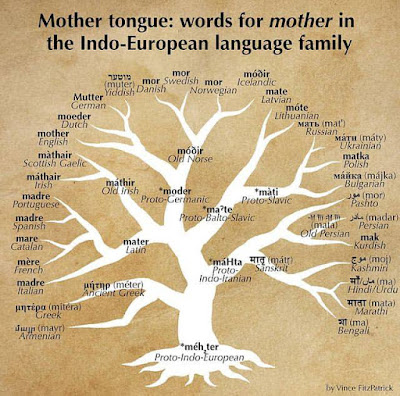Harvest and Winter Nights
It is interesting that Winter Nights (or Vetrnætr) is probably my favourite Heathen holiday and the last one I got to writing about here. (Well, we will see what I say after a long winter, and then maybe Sigrblót will be my favourite.) The reality is that while I love this time of year and all the symbolism, the weather, everything… I am always very busy. Finding a spare moment to write this was a challenge, but it was starting to feel like an incomplete task. In a way, that is the embodiment of this holiday.
This is the celebration of the end of summer and the harvest, the preparation for the winter. We can tell by its name that it is a series of nights, rather than one. (Although it is my personal take that all of the Heathen holidays were a series of nights, probably the 3 surrounding the full moon.)
If we look at the Ynglinga Saga, Winter Nights is said to be a blot at the beginning of winter for a good year. Many modern Heathens associated it with the phrase: Til árs ok friðar, “for a good year and frith (peace).” Now, I want to point out here the ambiguity of what exactly “for a good year” might have meant. Historically the idea of year was more like the modern concept of season. Is this a celebration of the end of summer and the good harvest? Or perhaps a blot that carries forth the hopes of Heathens for the winter not being too harsh. Or maybe it does mean year in this context. Some modern Heathens see Winter Nights as a New Year blot of sorts.
Now, we all know by now that in my own practice I follow the lunisolar calendar so my placement of Winter Nights is the full moon, after the new moon, after the autumn equinox. This usually falls in October. That said, a quick Google search will reveal the dates are contested between groups. Some would mark it as October 31st, others the Saturday between October 11th and 17th, still others say vaguely “mid-October.” There is also the related Ƿinterfylleþ which is timed using a lunar calendar as the first full moon in October according to modern sources. Historically, the primstaff of the Wormian calendar marks the first Winter Night as October 13th in contrast.
We are very fortunate in descriptions of Winter Nights in the Sagas. From these it seems that Winter Nights was often celebrated inside the home or hall. There was feasting and drinking of either wassail or ale. Another element of this holiday historically was the sacrifice of either cattle or horses for “bountiful harvest.” The holiday appears to have been a blót to Freyr, although often the Disir are also mentioned as being honoured during this time. It also seems like people gathered together to play games of sport.
Moving into modern practice most modern Heathens honour Freyr and the harvest at this time. Many also honour the Disir. And some make other associations with Freyja, Gerðr, or other deities. Some see this as the beginning of the Wild Hunt, so Odin or Holda might be brought to mind. In addition, because of the connection with Freyr, and Freyr being associated with Alfheim, some see Winter Nights as also being the time of Alfablót. I personally am a bit less sure about this association because it seems like in the sources Winter Nights is repeatedly described as many families gathering together, but Alfablót is described as being a private affair.
Another modern tendency is to try to group pagan holidays together, for example some celebrate Haustblót (often seen as the autumn equinox) as Winter Nights. Or Halloween/Samhain as Winter Nights. While both of these holidays have some similarities, I feel like it really narrows the scope of what Winter Nights is about and also our understanding of this holiday.
To me it seems that Winter Nights is a time of the community coming together to share the work of preparing for the winter. The harvest is done (or nearly so) but there are still foods to dry, or preserve and store, and animals to slaughter. The needs of the community for survival through the winter make this time vital. But, it is also the celebration of a bountiful summer, of a time of plenty before the hardships of winter. It is also the time that some seeds may be sowed to over-winter. So we are thankful for a bountiful summer and hopeful for another bountiful year to follow.
As modern Heathens we are not all as connected to the land or our food sources, and yet a difficult summer still affects all of us, because we have to eat to survive. I think that all of us can relate to being thankful for a bountiful year, even if it is just the tomatoes and squash we grew in our gardens. Or that the food prices aren’t gouging our wallets.
The amusement to me in writing this is that this year by my reckoning Winter Nights falls on the Canadian Thanksgiving weekend, so there is an element of that echoed in there as well.
Beyond being thankful for the harvest and wishing for another bountiful year though, I take you back to Til árs ok friðar, because the other element of this is frith, or the bountiful nature of our own communities. We want to see that we will grow in luck over the next year.
Further Reading:
“About Vetrnaetr” https://winternightsfestival.com/about-vetrnaetr/
The Lunisolar Calendar of the Germanic Peoples by Andreas E. Zautner
The Nordic Animist Year by Rune Hjarnø Rasmussen
“The Pagan Journey” http://thepaganjourney.weebly.com/winternights.html
“Vetrnætr for the Family" https://www.pagankids.org/post/vetrn%C3%A6tr
“Winter Nights "veturnóttum"/ Winterfylleth” https://www.aldsidu.com/post/winter-nights-veturn%C3%B3ttum-winterfylleth
“Winter Nights” https://www.theasatrucommunity.org/winter-nights
"Winternights — The Heathen Samhain?" https://www.patheos.com/blogs/agora/2016/10/happily-heathen-winternights-the-heathen-samhain/
Image Source:
“Kulning” by Jonna Jinton (check her out on YouTube. She is amazing! https://www.youtube.com/user/JonnaJinton/videos)
.jpg)


